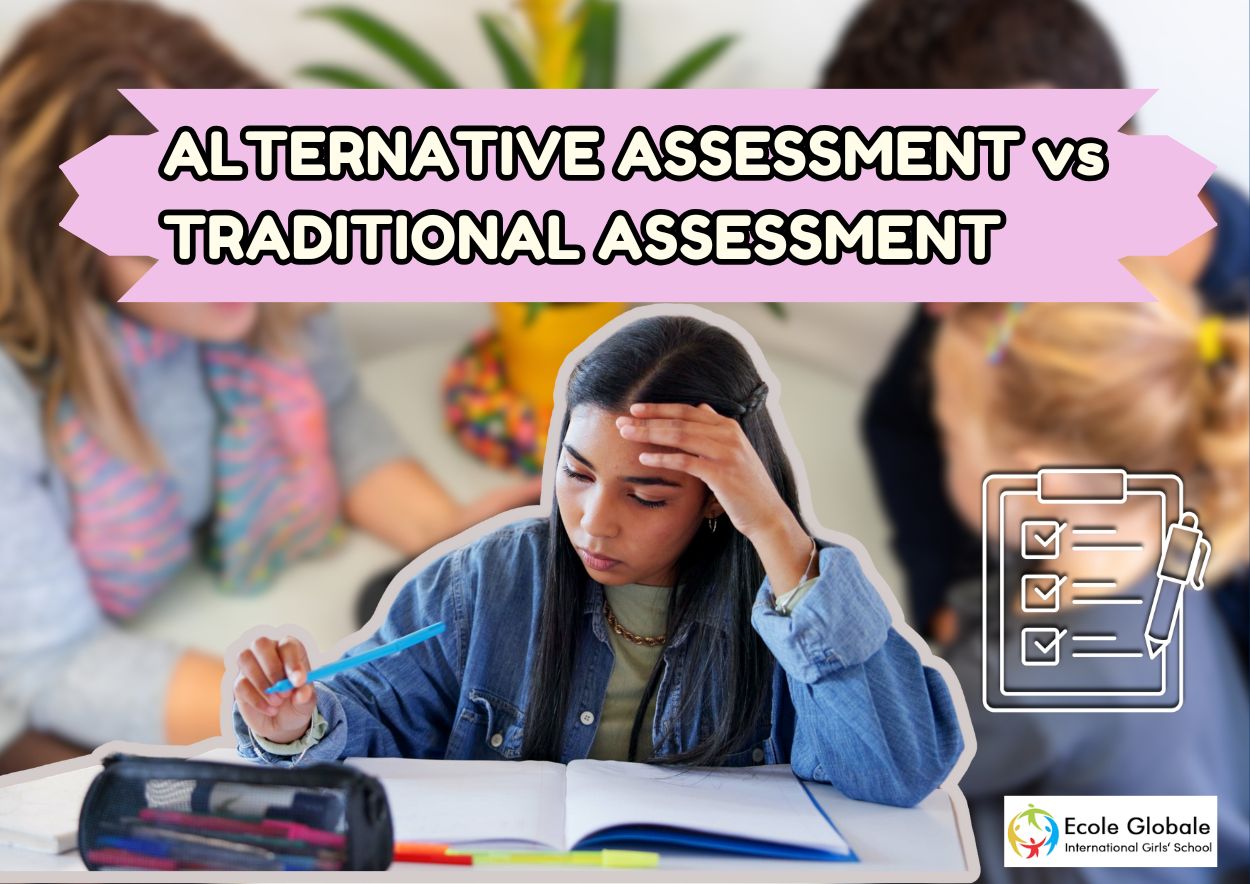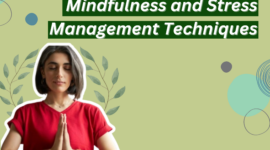In the evolving landscape of education, assessment methods play a pivotal role in shaping student outcomes and learning experiences. Traditional assessment and alternative assessment are two distinct approaches, each with its own strengths and limitations.
Understanding the differences between traditional and alternative assessment methods is essential for students and parents aiming to foster effective learning environments and achieve academic success, especially in reputed schools in Dehradun that emphasize holistic development.
Educational assesement serves as a critical tool for gauging student learning, understanding educational needs, and shaping future teaching methodologies. Traditionally, assessments have followed a conventional path, focusing on standardized testing and quantifiable results. However, the emergence strategies has challenged this norm, advocating for a more holistic approach to evaluating student learning.
What is Traditional Assessment?

It refers to the conventional methods of testing that have dominated the educational landscape for decades. These assessments are often standardized, focusing on quantifiable achievements through tests, quizzes, and exams. They are characterized by their structured format, offering clear, objective measures of student performance against predetermined criteria.
Advantages and Disadvantages
Advantages:
- Objectivity and Standardization: It provide a uniform benchmark for measuring student achievement, facilitating comparisons across different educational settings.
- Efficiency: These assessments can be administered to large groups simultaneously, making them time and resource-efficient.
Disadvantages:
- Limited Scope: They often fail to capture the breadth of a student’s abilities, focusing more on memorization than critical thinking or problem-solving skills.
- Stress and Anxiety: The high stakes associated with these assessments can induce significant stress among students, potentially affecting their performance.
Understanding Traditional Assessment

The primarily relies on standardized tests, quizzes, and exams to evaluate a student’s knowledge and skills. These assessments are typically structured, timed, and focused on memorization and the ability to recall information.
Key Features of Traditional Assessment
- Standardization: Traditional assessments are uniform, ensuring that every student is evaluated using the same criteria and conditions.
- Quantitative Scoring: These assessments often use numerical scores or letter grades, providing a clear metric for performance.
- Focus on Content Mastery: Emphasis is placed on the ability to remember and reproduce information accurately.
- High-Stakes Testing: Results from traditional assessments can significantly impact a student’s academic trajectory, such as placement in higher education or qualification for scholarships.
What is Alternative Assessment?

Alternative assessment marks a shift towards holistic and inclusive methods of evaluating student learning. Unlike traditional assessments that rely solely on standardized tests, these approaches incorporate diverse formats such as portfolios, presentations, group projects, and self-assessments. This broader evaluation framework offers a more comprehensive insight into a student’s skills, growth, and overall progress.
Advantages and Disadvantages
Advantages:
- Holistic Evaluation: Assesses a wide range of skills, including critical thinking, creativity, and problem-solving.
- Engagement and Motivation: More interactive and relevant tasks can increase student interest and investment in learning.
- Personalized Feedback: Provides detailed and constructive feedback, helping students understand their strengths and areas for growth.
- Encourages Lifelong Learning: Promotes skills that are essential beyond the classroom, such as self-management and collaboration.
Disadvantages:
- Subjectivity: The qualitative nature of these assessments can introduce subjectivity into the evaluation process, potentially leading to inconsistencies.
- Time-Consuming: They require more time to prepare, administer, and evaluate, posing challenges in terms of efficiency and scalability.
- Resource Intensive: May need additional resources and training for educators to implement effectively.
Comparative Analysis

The choice between traditional and alternative assessment methods hinges on the educational objectives and the desired learning outcomes. While traditional assessments are effective for measuring specific knowledge and skills under uniform conditions, they may not fully encapsulate a student’s comprehensive abilities or potential. On the other hand, alternative assessments, with their focus on a holistic evaluation, can foster a deeper understanding and application of knowledge but may face challenges in standardization and practical implementation.
Conclusion
The debate between traditional and alternative assessments underscores the complexity of measuring educational achievement. Both methods have their merits and limitations, and the optimal approach may involve a balanced integration of both, tailored to the specific needs and goals of the educational context. As the landscape of education continues to evolve, so too will the strategies for assessing student learning, with the ultimate aim of fostering an environment that supports diverse talents and prepares students for the challenges of the future.
Frequently Asked Questions
Q1. What is alternative assessment?
Ans: Alternative assessment refers to evaluation methods that go beyond traditional tests and exams, focusing on a comprehensive assessment of a student’s abilities, including critical thinking, creativity, and practical application of knowledge.
Q2. How does traditional assessment differ from alternative assessment?
Ans: Traditional assessment relies on standardized tests and exams to measure specific knowledge and recall abilities, while alternative assessment uses diverse methods like projects, portfolios, and performance tasks to evaluate a broader range of skills and understanding.
Q3. What are the benefits of alternative assessment for students?
Ans: Alternative assessment promotes deeper engagement, enhances critical thinking and problem-solving skills, fosters creativity, and provides personalized feedback that supports continuous improvement and lifelong learning.
Q4. Can traditional and alternative assessments be used together?
Ans: Yes, combining traditional and alternative assessments can provide a balanced evaluation of a student’s knowledge and skills, leveraging the strengths of both methods to offer a more comprehensive understanding of their abilities.










Thank you so much for sharing your very informative discussions.
Hey 🙂 Just between, are some totally uncorelated websites blogs to ours, however, they are ultimate worth checking order out..
I am really Glad i found this blog.Added allenchu.4rtofclean.com to my bookmark!
I simply couldnt leave your site before telling you which i really enjoyed the standard information you offer for your visitors Is going to be back often to check on on new posts
Several of the factors associated with this weblog publish are usually advantageous nonetheless had me personally wanting to understand, did they seriously suggest that? 1 point Ive acquired to say is your writing expertise are very good and Ill be returning back again for any brand-new blog post you come up with, you may possibly have a brand-new supporter. I book marked your weblog for reference.
Hello 🙂 Your post is very brilliant and fascinated, I like the idea and conce[tion. I retargeting main address for all friends Thanks!
Very soon this website will be famous amid all blogging and site-building
visitors, due to it’s fastidious posts